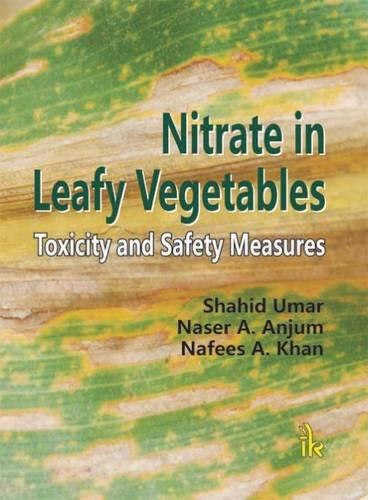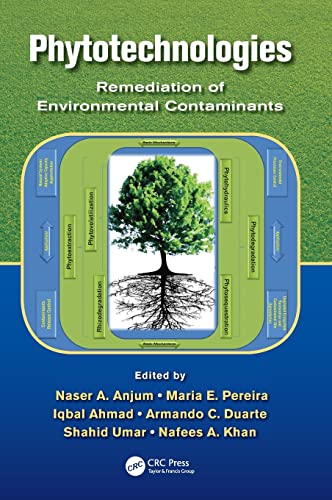edited naser anjum shahid umar (3 Ergebnisse)
Suchfilter
Produktart
- Alle Product Types
- Bücher (3)
- Magazine & Zeitschriften (Keine weiteren Ergebnisse entsprechen dieser Verfeinerung)
- Comics (Keine weiteren Ergebnisse entsprechen dieser Verfeinerung)
- Noten (Keine weiteren Ergebnisse entsprechen dieser Verfeinerung)
- Kunst, Grafik & Poster (Keine weiteren Ergebnisse entsprechen dieser Verfeinerung)
- Fotografien (Keine weiteren Ergebnisse entsprechen dieser Verfeinerung)
- Karten (Keine weiteren Ergebnisse entsprechen dieser Verfeinerung)
- Manuskripte & Papierantiquitäten (Keine weiteren Ergebnisse entsprechen dieser Verfeinerung)
Zustand Mehr dazu
- Neu (2)
- Wie Neu, Sehr Gut oder Gut Bis Sehr Gut (1)
- Gut oder Befriedigend (Keine weiteren Ergebnisse entsprechen dieser Verfeinerung)
- Ausreichend oder Schlecht (Keine weiteren Ergebnisse entsprechen dieser Verfeinerung)
- Wie beschrieben (Keine weiteren Ergebnisse entsprechen dieser Verfeinerung)
Einband
- alle Einbände
- Hardcover (3)
- Softcover (Keine weiteren Ergebnisse entsprechen dieser Verfeinerung)
Weitere Eigenschaften
- Erstausgabe (2)
- Signiert (Keine weiteren Ergebnisse entsprechen dieser Verfeinerung)
- Schutzumschlag (2)
- Angebotsfoto (Keine weiteren Ergebnisse entsprechen dieser Verfeinerung)
Sprache (1)
Preis
- Beliebiger Preis
- Weniger als EUR 20 (Keine weiteren Ergebnisse entsprechen dieser Verfeinerung)
- EUR 20 bis EUR 45 (Keine weiteren Ergebnisse entsprechen dieser Verfeinerung)
- Mehr als EUR 45
Gratisversand
- Kostenloser Versand nach USA (Keine weiteren Ergebnisse entsprechen dieser Verfeinerung)
Land des Verkäufers
Verkäuferbewertung
-
Nitrate in Leafy Vegetables Toxicity and Safety Measures
Verlag: I.K.International Publishing House, 2013
ISBN 10: 9382332219 ISBN 13: 9789382332213
Sprache: Englisch
Anbieter: Vedams eBooks (P) Ltd, New Delhi, Indien
Erstausgabe
EUR 49,95
Währung umrechnenEUR 17,50 für den Versand von Indien nach USAAnzahl: 1 verfügbar
In den WarenkorbHardcover. Zustand: New. Zustand des Schutzumschlags: New. 1st Edition. Contents: Foreword. Preface. 1. Contribution of Leafy Vegetables to Dietary Nitrate Intake and Regulations/Francesco Di Gioia, Maria Gonnella and Pietro Santamaria. 2. Nitrate and Edible Plants in the Mediterranean Region of Turkey: An Overview/Munir Ozturk, Salih Gucel, Serdal Sakcali and Suleyman Baslar. 3. Pathophysiology of Nitrate Toxicity in Humans and its Mitigation Measures/Sunil Gupta, R.C. Gupta and A.B. Gupta. 4. Nitrate Content in the Edible Parts of Vegetables: Origin, Safety, Toxicity Limits and the Prevalence of Cancer in Iran/M.J. Malakouti, Sh. Ladan and S.J. Tabatabaee. 5. Studying Nitrate Accumulation in Spinach and Cabbage Under Organic Conditions/Sahriye Sonmez and Sedat Citak. 6. Use of Organic Fertilizers for Crop Nutrition: Impact on Environmental and Threats to Human Health/Zahoor Ahmad, Mitsuhiro Inoue and Sadahiro Yamamoto. 7. Nitrate Management Approaches in Leafy Vegetables/Shahid Umar, Anjana, Naser A. Anjum and Nafees A. Khan. 8. Crop, Soil, and Nitrogen Fertilization Management Strategies to Reduce Nitrate Accumulation in Plants/Harmandeep Singh, Kaushik Majumdar and T. Satyanarayana. Index. The present book represents the first comprehensive compilation of the latest science of the dietary nitrate sources, potential human health effects and sustainable remedial strategies. This book provides practical, data-driven resources based upon the totality of the evidence to help the reader understand the basics, treatments, and preventive strategies that are involved in the understanding all about nitrate in plants and humans. The overarching goal of the scholarly chapters contributed by worlds' recognized subject-authorities is to provide fully referenced information to plant scientists and health professionals; so that they may have a balanced perspective on the known and potential excess nitrate consumption, and also on the value of various preventive and treatment options that are available as well as will be in the foreseeable future.
-
Oxidative Stress in Plants : Causes Consequences and Tolerance
Verlag: I.K. International Publishing House, 2012
ISBN 10: 9381141029 ISBN 13: 9789381141021
Sprache: Englisch
Anbieter: Vedams eBooks (P) Ltd, New Delhi, Indien
Erstausgabe
EUR 63,27
Währung umrechnenEUR 17,50 für den Versand von Indien nach USAAnzahl: 1 verfügbar
In den WarenkorbHardcover. Zustand: As New. Zustand des Schutzumschlags: As New. 1st Edition. Contents: Foreword. Preface. 1. An Introduction to Oxidative Stress in Plants and the Role of Non-Enzymatic Antioxidants. 2. Environmental Factors Affecting Components of Ascorbate-Glutathione Pathway in Crop Plants. 3. Regulatory Role of Components of Ascorbate-Glutathione (AsA-GSH) Pathway in Plant Tolerance to Oxidative Stress. 4. Ascorbate and Glutathione: Saviours Against Oxidative Stress. 5. Ascorbate-Glutathione and Plant Tolerance to Various Abiotic Stresses. 6. Ascorbate-Glutathione Related Redox Regulation in Plant Stress Tolerance. 7. Detoxification of Heavy Metal Induced Oxidative Stress in Plants Enzymatic- and Non-Enzymatic MechanismsA Mini Review. 8. Significance of Glutathione in Higher Plants for Combating Abiotic Stress-Effects. 9. Heavy Metals and Oxidative Stress in Plants. 10. Ascorbate and Glutathione: A Defence System Against Heavy Metal Stress in Plants. 11. The Role of Ascorbate Peroxidase and Glutathione in Higher Plants to Abiotic-Induced Oxidative Stress. 12. Defence Strategies of Plants Against UV-B-Induced Oxidative Stress. 13. Role of Ascorbate-Glutathione During Salt Stress-Induced Oxidative Stress Tolerance in Plants. 14. Secondary Metabolites as Non-Enzymatic Plant Protectors from Oxidative Stress. 15. The Role of Ascorbate in Growth and Development of Cells During the Formation of Annual Rings in Coniferous Trees. 16. Modulation of Glutathione, its Redox Couple and Related Enzymes in Plants Under Abiotic Stresses. 17. Heavy Metals in Soil and Plants: An Overview of Arsenic, Cadmium, Chromium and Mercury. Subject Index. Oxidative stress is a central factor in a number of biotic and abiotic stress phenomena that occurs when there is a serious imbalance in any plant cell compartment between the production of reactive oxygen species (ROS) and antioxidant defense, leading to physiological and metabolic changes. The presence of high concentration of ROS in cells causes oxidative damage to photosynthetic functions and vital bio-molecules, and disrupt cellular metabolism. Thus, it is important for plant cells to have tight control on the concentration of ROS. Plants possess to a variable extent antioxidant metabolites, enzymes and non-enzymes that have the ability to detoxify ROS thus, to protect the photosynthetic- and cellular functions against ROS-caused oxidative stress and to maintain optimum growth, development and productivity under changing environment. The current volume mainly elucidates major recent advances through physiological and molecular studies on the aspects of the causes, consequences of oxidative stress and also discusses and suggests potential strategies for enhancing tolerance to oxidative stress in detail in the light of recent advances in molecular biology.
-
Phytotechnologies: Remediation of Environmental Contaminants
Anbieter: Revaluation Books, Exeter, Vereinigtes Königreich
EUR 402,85
Währung umrechnenEUR 17,28 für den Versand von Vereinigtes Königreich nach USAAnzahl: 2 verfügbar
In den WarenkorbHardcover. Zustand: Brand New. 1st edition. 617 pages. 10.25x7.25x2.00 inches. In Stock.




